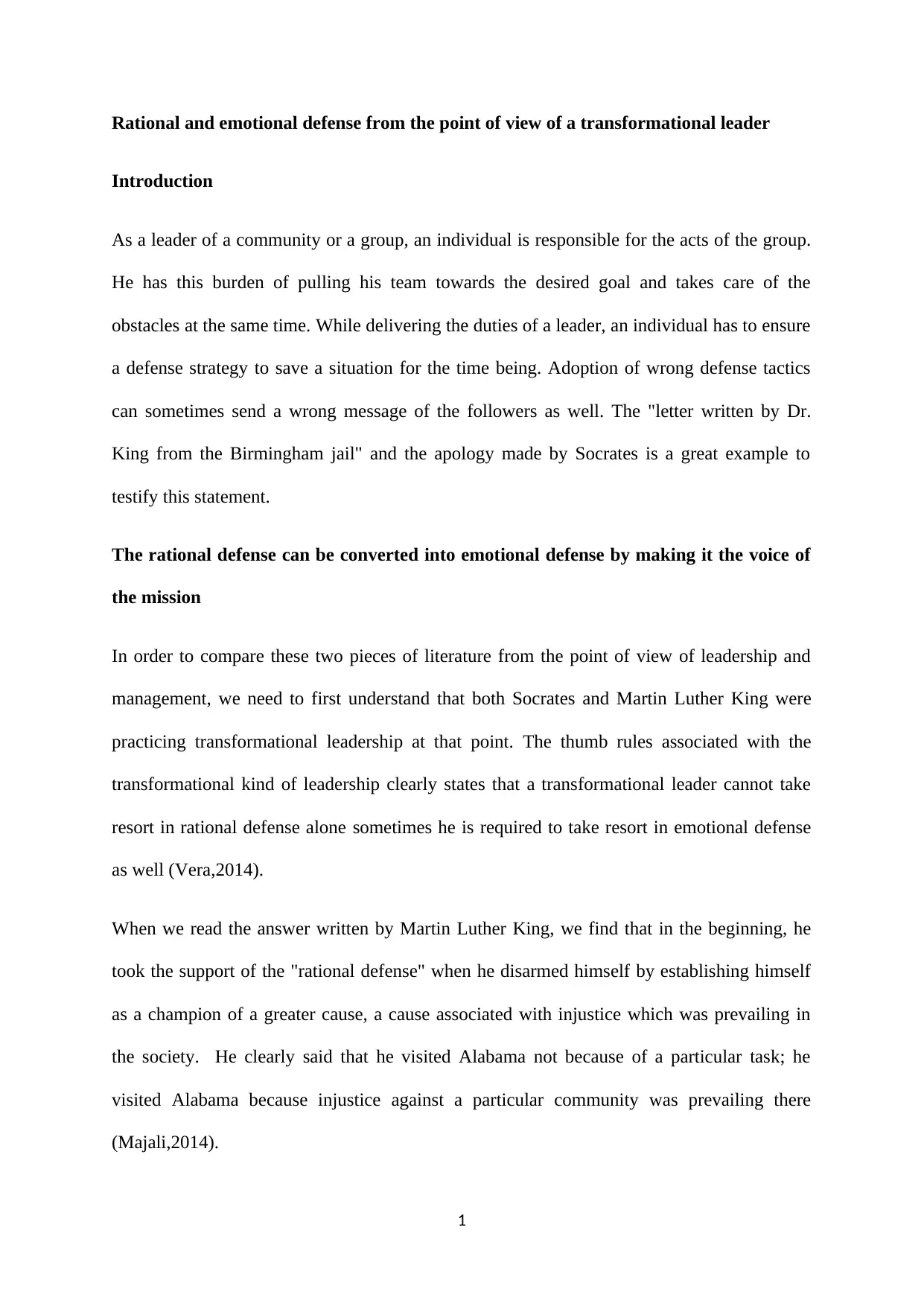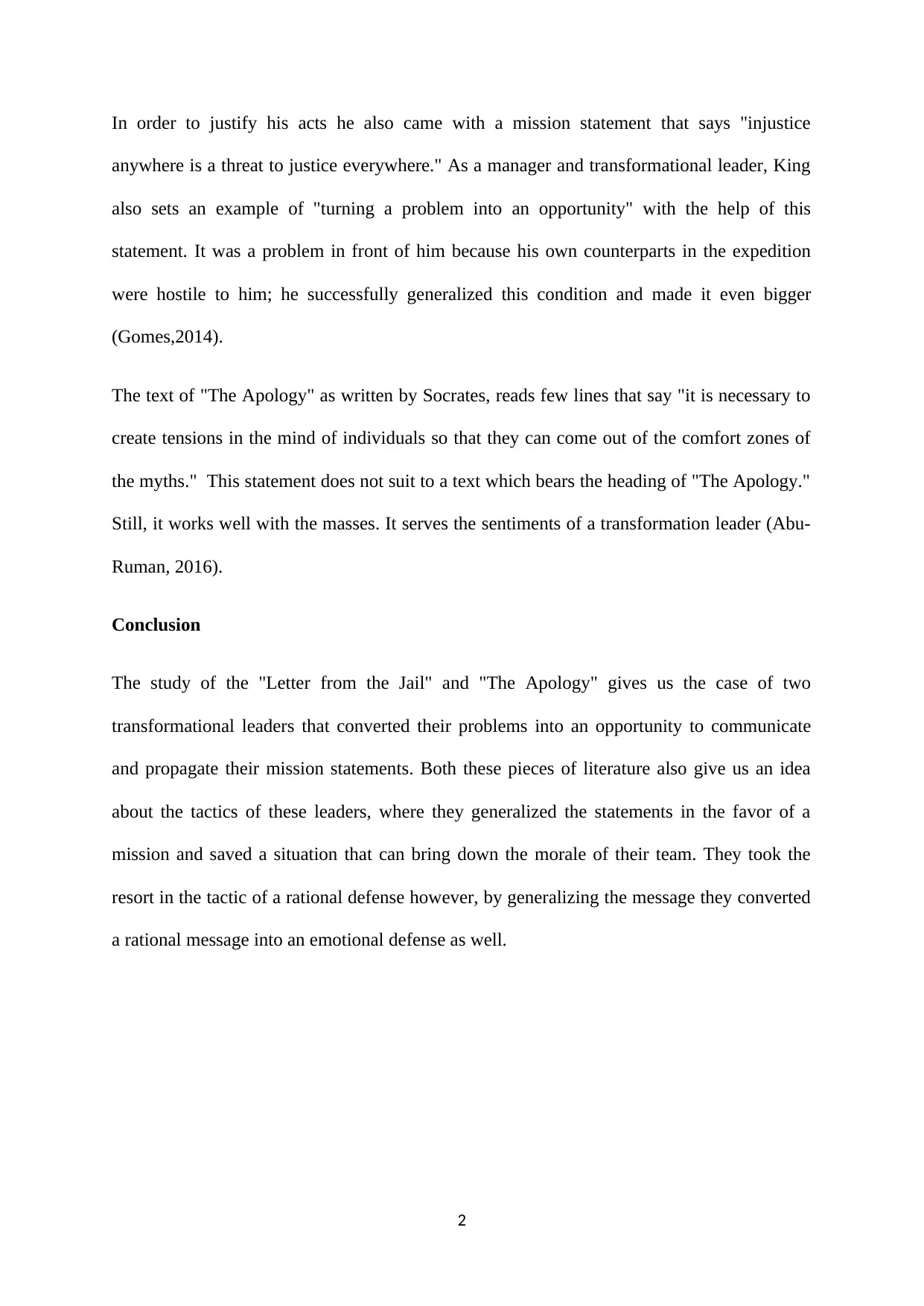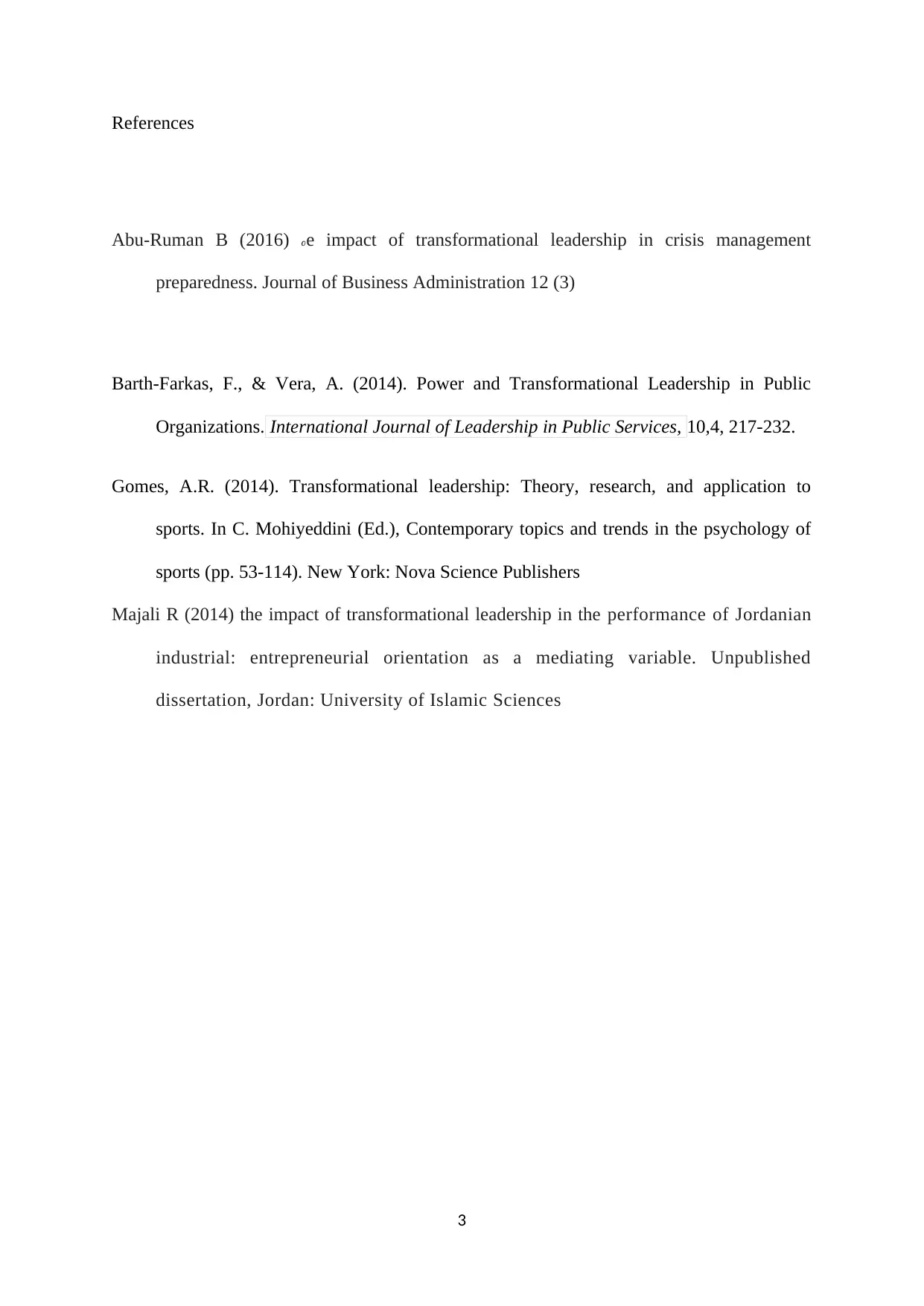Defense Strategies of Transformational Leaders: King and Socrates
VerifiedAdded on 2023/01/05
|4
|734
|74
Essay
AI Summary
This essay explores the concepts of rational and emotional defense within the context of transformational leadership, drawing upon the examples of Martin Luther King's "Letter from Birmingham Jail" and Socrates' "The Apology." It examines how transformational leaders, such as King and Socrates, utilize both rational and emotional strategies to defend their actions and propagate their missions. The analysis highlights how these leaders convert problems into opportunities, generalizing their messages to resonate with a wider audience and maintain the morale of their followers. The essay emphasizes the importance of adapting defense strategies to the specific context, converting rational arguments into emotionally compelling narratives to effectively communicate and advance their visions. The essay references scholarly articles to support its arguments and provide a comprehensive understanding of the subject.
1 out of 4







![[object Object]](/_next/static/media/star-bottom.7253800d.svg)